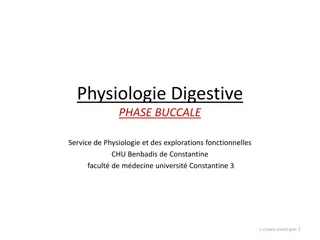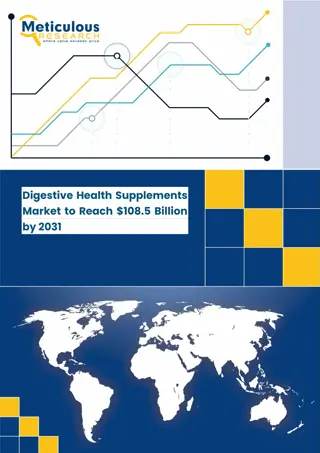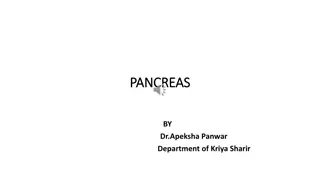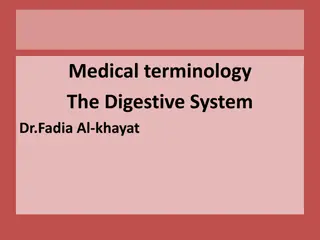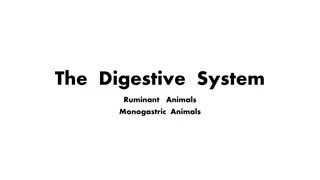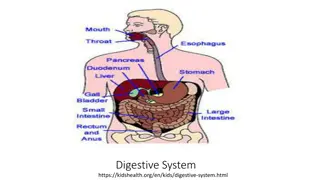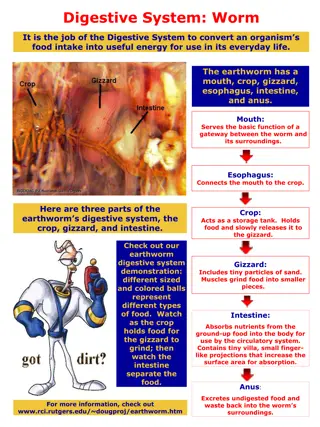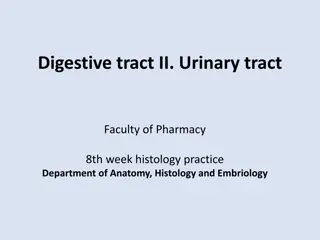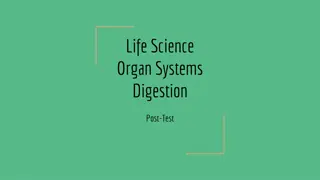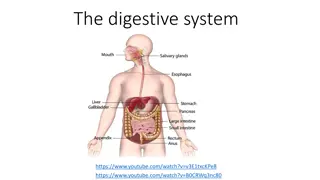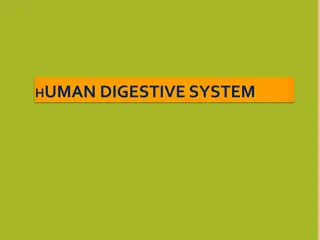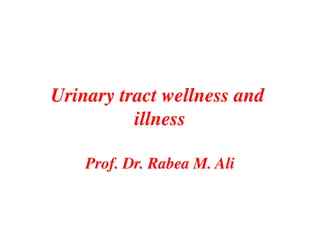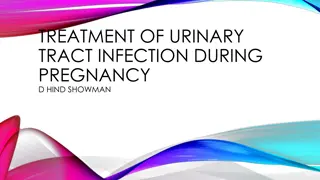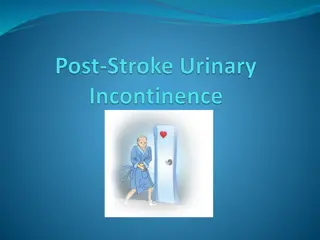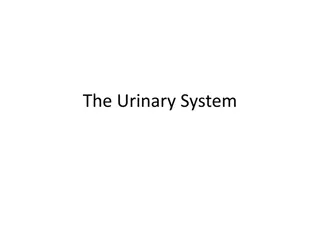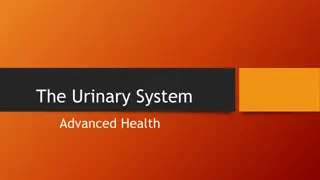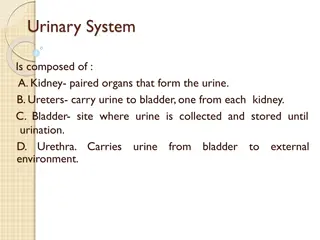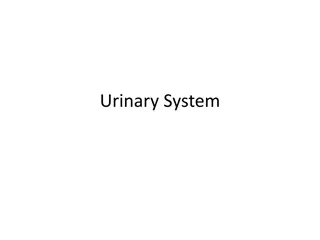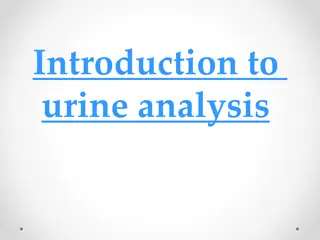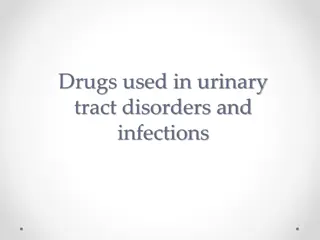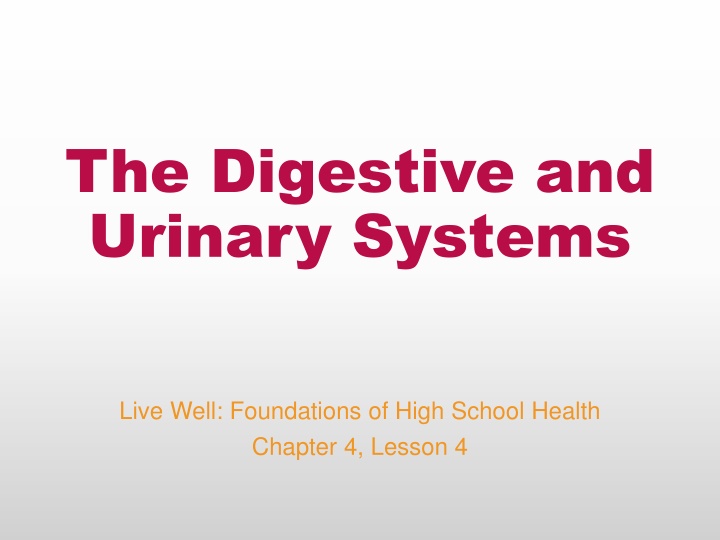
Understanding Digestive and Urinary Systems for Better Health
Explore the intricacies of the digestive and urinary systems, common problems experienced, and how to maintain good health. Learn about digestion process, urinary system functions, prebiotics, probiotics, and more for optimal well-being.
Uploaded on | 4 Views
Download Presentation

Please find below an Image/Link to download the presentation.
The content on the website is provided AS IS for your information and personal use only. It may not be sold, licensed, or shared on other websites without obtaining consent from the author. If you encounter any issues during the download, it is possible that the publisher has removed the file from their server.
You are allowed to download the files provided on this website for personal or commercial use, subject to the condition that they are used lawfully. All files are the property of their respective owners.
The content on the website is provided AS IS for your information and personal use only. It may not be sold, licensed, or shared on other websites without obtaining consent from the author.
E N D
Presentation Transcript
The Digestive and Urinary Systems Live Well: Foundations of High School Health Chapter 4, Lesson 4
Write About It What common digestive problems do you think most people experience at some point in their lives? Describe a time you experienced one of these problems. What did you do to feel better?
Can you . . . (1 of 2) Explain how the organs of the digestive system work together to get nutrients out of food and to the body? Identify the main organs and functions of the urinary system? Explain common problems associated with the digestive system? Describe what prebiotics and probiotics are and explain how they related to gut health? (continued)
Can you . . . (2 of 2) Explain the long-term risks of poor kidney health? Describe how to maintain good digestive and urinary health?
The Digestive System The digestive system is the group of organs that break down the food you eat and get it to the cells for fuel.
How Digestion Works (1 of 3) Digestion is a complex process that involves many organs and actions. This system is involved in digestion, absorption, and elimination. Chewing and swallowing Chewing is the beginning of digestion. Salivary glands produce saliva, which begins to break down carbohydrates. Once swallowed, foods move through the esophagus toward the stomach. (continued)
How Digestion Works (2 of 3) Mixing, storing, and moving foods The stomach is a hollow organ that functions like a small sack. The stomach mixes foods with gastric juices, such as hydrochloric acid and pepsin, to chemically break down foods. The partially digested food produced is called chyme. The liver makes bile, a yellow-green fluid that helps you break down and absorb the fat you eat. (continued)
How Digestion Works (3 of 3) Absorbing nutrients Chyme moves from the stomach to the small intestine, where most of the actual work occurs. About 90 percent of all nutrients are absorbed as food travels through the small intestine toward the large intestine. Absorbing water and eliminating waste The large intestine s primary job is to absorb the remaining water, salts, and vitamins and to eliminate the waste.
Your Gut Bacteria Your digestive system is home to about 100 trillion (100,000,000,000,000) bacteria both good and bad. Good bacteria help break down the nutrients you eat and protect you from infections. Your digestive health, the balance of your stomach acid, and your good and bad bacteria are called your gut health.
Prebiotics and Probiotics The bacteria in your system are living organisms and need fuel to survive. Foods that can feed the bacteria in your gut are called prebiotics. Examples include bananas, garlic, onions, radishes, carrots, and tomatoes. Probiotics are the living bacteria found in foods. Foods high in probiotics include fermented foods and drinks, such as some pickles and sauerkraut, tempeh, kefir, kombucha, and Greek yogurt.
Short-Term Challenges to Digestive Health Digestive problems can be short term and relate to how your system functions. Problems can develop in one of the organs in the digestive system. The following are some short-term conditions: Indigestion, constipation, gas, vomiting, heartburn, diarrhea, ulcers, hemorrhoids
Long-Term Challenges to Digestive Health More serious factors can harm the health of your digestive system. Some of these conditions are genetic. Others relate to eating habits, other diseases, or medications.
Digestive System Conditions Condition or disease Description Cause Swollen colon or small intestine Unknown; could be partly genetic and made worse by stress or diet Colitis and Crohn s disease Cirrhosis Damage and scarring of the liver Alcoholism or diseases that damage the liver Colon cancer Cancer in the large intestine; often begins as polyps, or noncancerous growths, in the colon Genetics or unknown cause; diet and lifestyle play a role Lactose intolerance Inability to fully digest lactose (a form of sugar in milk) Occurs when the small intestine does not make the enzyme needed to digest lactose Irritable bowel syndrome (IBS) Abnormality in colon function resulting in severe cramping, gas, diarrhea, and constipation Could be caused by disruptions to muscle or nervous system in the colon or by infection
The Urinary System The urinary system removes liquid from the body. The system is made up of two kidneys and two ureters, the bladder, and the urethra. The primary purpose of the urinary system is filtering and cleaning.
When Things Go Wrong With Urinary Health (1 of 2) Urinary Tract Infections A urinary tract infection (UTI) is an infection to any part of the urinary system. Most people with UTIs experience a burning pain when going to the bathroom. Kidney Stones These stone-like deposits in the urinary system are made of minerals and salts that have been removed from the blood. Passing a kidney stone is often very painful. (continued)
When Things Go Wrong With Urinary Health (2 of 2) Kidney Disease Kidney disease occurs when a person s kidneys gradually lose function. It cannot be cured. Treatments try to prevent the disease from getting worse. People with advanced cases of kidney disease must have artificial machines filter their blood for them. This process is called kidney dialysis.
Skill-Building Challenge Using the following five steps for health promotion, explain how you might promote good digestive health to your peers. Step 1: Identify a healthy behavior to promote. Step 2: Support your message with facts. Step 3: Find a healthy reason to do the behavior. Step 4: Find the people or groups that benefit most. Step 5: Create your message in a way that works best for the people or groups you want to reach.

